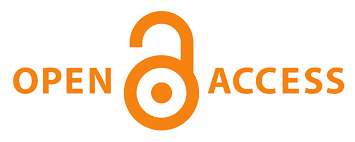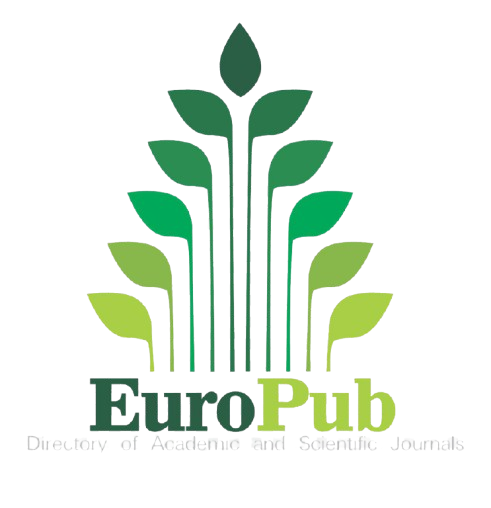Menstrual Hygiene Management Practices, Knowledge Gaps, and the Imperative for Male Engagement in Coeducational High Schools in Dhaka, Bangladesh
DOI:
https://doi.org/10.61561/ssbgjms.v6i01.77Keywords:
Menstrual Hygiene Management, Male Engagement, Adolescent Health, School Health, Bangladesh, Coeducational Schools, SRHRAbstract
Introduction: Menstrual hygiene management (MHM) is critical for adolescent girls' health and well-being, yet it remains a sensitive topic in many cultures, including Bangladesh, where cultural norms and lack of resources hinder optimal practices. The role of male engagement in MHM is increasingly recognized but insufficiently explored in this context.
Objective: This study aimed to explore MHM practices among female students and assess the knowledge and attitudes of both male and female students regarding menstruation, and to understand the role of male engagement in coeducational high schools in Dhaka, Bangladesh.
Methods: A cross-sectional study was conducted in three coeducational high schools in Dhaka. Data were collected through quantitative surveys with 300 students (150 girls, 150 boys; grades 9-12, selected randomly via lottery) and qualitative in-depth interviews with 20 participants (10 students, 8 teachers, randomly selected). Descriptive statistics were used for quantitative data, and thematic analysis was applied to qualitative data.
Results: The average age of female respondents was 17 years (range 15-19), with menarche occurring at an average age of 11.8 years. Most (73%) students were from medium socioeconomic status families. Among female students, 82% used sanitary pads, but 42% changed them less frequently than recommended, and 87% did not change products at school. While 62% of girls knew about menstruation before menarche, significant prohibitions were reported (e.g., 100% not allowed to perform religious activities). Male students demonstrated limited knowledge (e.g., 62% had 'no idea' about the current perception of menstruation) and discomfort discussing menstruation. Qualitative findings highlighted that male involvement (students and teachers) is crucial for creating a supportive environment, providing education, supporting access to resources, and challenging harmful cultural norms.
Conclusion: Suboptimal MHM practices and knowledge gaps, particularly among male students, underscore the need for comprehensive MHM education and proactive male engagement in Bangladeshi schools. A coordinated effort among students, teachers, parents, and policymakers is essential to dismantle silence and promote menstrual health.
References
1. Kuhlmann AS, Henry K, Wall LL. Menstrual Hygiene Management in Resource-Poor Countries. Obstet Gynecol Surv. 2017 Jun;72(6):356-376. doi: 10.1097/OGX.0000000000000443. PMID: 28661550; PMCID: PMC5482567.
2. Shrestha S, Thapa S, Bucha B, Kunwar S, Subedi B, Singh AR, et al. (2025) Effectiveness of menstrual hygiene management training to enhance knowledge, attitude, and practice among adolescents in Sindhupalchowk, Nepal. PLoS ONE 20(1): e0313422. https://doi.org/10.1371/journal. pone.0313422
3. UNFPA Bangladesh. Menstrual health management in urban slums in Bangladesh [Internet]. Dhaka: UNFPA Bangladesh; 2023 Feb [cited 2024 Jun 20]. Available from: https://bangladesh.unfpa.org/sites/default/files/pub-pdf/mhm_urban_slum_in_bangladesh_final_feb_2023.pdf
4. Menstrual health and hygiene [Internet]. World Bank. [cited 2025 May 12]. Available from: https://www.worldbank.org/en/topic/water/brief/menstrual-health-and-hygiene
5. Tomar A, Mazumder H, Hossain MM. Period poverty in Bangladesh: Examining low-cost and sustainable solutions. Indian J Med Ethics. 2025 Apr-Jun; 10(2) NS:145-149. DOI: 10.20529/IJME.2025.003
6. Afiaz A, Biswas RK Awareness on menstrual hygiene management in Bangladesh and the possibilities of media interventions: using a nationwide cross-sectional survey
BMJ Open 2021;11:e042134. doi: 10.1136/bmjopen-2020-042134
7. Warrington, S., Coultas, M., Das, M. and Nur, E. (2021), "“The door has opened”: moving forward with menstrual health programming in Bangladesh", International Journal of Human Rights in Healthcare, Vol. 14 No. 4, pp. 296-310. https://doi.org/10.1108/IJHRH-11-2020-0102
8. Hasan M, Hassan M N, Mita MH, Zahara FT, Hasib M. Menstrual hygiene practices and school absenteeism among adolescent girls in Bangladesh: A cross-sectional study. Population Medicine. 2021;3(March):8. https://doi.org/10.18332/popmed/133641
9. CPD.org.bd [Internet]. Menstruation: a taboo or a ladder to development? [2018 Apr 19]. Available from: https://cpd.org.bd/menstruation-a-taboo-or-a-ladder-to-development/
10. Yasmin S. Menstruation and the social stigma in Bangladesh [Internet]. The Daily Star. 2021 [cited 2025 May 12]. Available from: https://www.thedailystar.net/supplements/menstrual-hygiene-day-2021/news/menstruation-and-social-stigma-bangladesh-2100177
11. Shah, V., Nabwera, H., Sonko, B., Bajo, F., Faal, F., Saidykhan, M., Jallow, Y., Keita, O., Schmidt, W.-P., & Torondel, B. (2022). Effects of Menstrual Health and Hygiene on School Absenteeism and Drop-Out among Adolescent Girls in Rural Gambia. International Journal of Environmental Research and Public Health, 19(6), 3337. https://doi.org/10.3390/ijerph19063337
12. UNICEF. Menstrual hygiene management: Challenges facing students and nuns in Bhutan [Internet]. UNICEF ROSA. 2023 [cited 2025 May 12]. Available from: https://www.unicef.org/rosa/reports/menstrual-hygiene-management-challenges-facing-students-and-nuns-bhutan
13. Basit A, Antu OS, Mithun M, Islam MS. Navigating the currents: understanding awareness, attitudes, and menstrual hygiene management challenges in Bangladesh’s Haor Region. Journal of Biosocial Science. 2025;57(1):128-145. doi:10.1017/S0021932024000415
14. WaterAid. Shifting the paradigm: men’s crucial contribution to menstrual health and hygiene [Internet]. WaterAid India. 2024 [cited 2025 May 12]. Available from: https://www.wateraid.org/in/blog/shifting-the-paradigm-mens-crucial-contribution-to-menstrual-health-and-hygiene
15. Rizwana Khan, Supta Sarker, Farhana Sultana, Mahbub Ul Alam, Mehjabin Tishan Mahfuz, Md. Nuruzzaman, Mohammad Rofi Uddin, Abdullah Al Masud, Shaan Muberra Khan, Erin C. Hunter, Leanne Unicomb, Mahbubur Rahman, Stephen P. Luby, Peter J. Winch; Engaging boys in menstrual hygiene management (MHM) interventions in Bangladeshi schools: a pilot study to assess acceptability and feasibility. Journal of Water, Sanitation and Hygiene for Development 1 February 2023; 13 (2): 113–126. doi: https://doi.org/10.2166/washdev.2023.153
16. MAHON, T., TRIPATHY, A., & SINGH, N. (2015). Putting the men into menstruation: the role of men and boys in community menstrual hygiene management. Waterlines, 34(1), 7–14. http://www.jstor.org/stable/24688187
17. Ahmed, M. S., Yunus, F. M., Hossain, M. B., Sarker, K. K., & Khan, S. (2021). Association between Menstrual Hygiene Management and School Performance among the School-Going Girls in Rural Bangladesh. Adolescents, 1(3), 335-347. https://doi.org/10.3390/adolescents1030025
18. Ha MAT, Alam MZ. Menstrual hygiene management practice among adolescent girls: an urban-rural comparative study in Rajshahi division, Bangladesh. BMC Womens Health. 2022 Mar 23;22(1):86. doi: 10.1186/s12905-022-01665-6. PMID: 35321715; PMCID: PMC8943920.
19. WaterAid. Menstrual hygiene management in schools in South Asia: Synthesis report [Internet]. London: WaterAid; 2018 [cited 2025 May 12]. Available from: https://washmatters.wateraid.org/sites/g/files/jkxoof256/files/menstrual-hygiene-management-in-schools-in-south-asia---synthesis-report.pdf
20. Daniel N, Kejela G, Fantahun F, Desalegn M, Guteta F. Menstrual hygiene management practice and its associated factors among in-school adolescent girls in Western Ethiopia. Contracept Reprod Med. 2023 Jan 3;8(1):1. doi: 10.1186/s40834-022-00196-7. PMID: 36597101; PMCID: PMC9809129.
21. McCammon E, Bansal S, Hebert LE, Yan S, Menendez A, Gilliam M. Exploring young women's menstruation-related challenges in Uttar Pradesh, India, using the socio-ecological framework. Sex Reprod Health Matters. 2020 Dec;28(1):1749342. doi: 10.1080/26410397.2020.1749342. PMID: 32308152; PMCID: PMC7175471.
22. Fighting menstrual discrimination in Bangladesh and Nepal [Internet]. ifa (Institut für Auslandsbeziehungen). 2023 [cited 2025 May 12]. Available from: https://www.ifa.de/en/blog/article/fighting-menstrual-discrimination-in-bangladesh-and-nepal/
23. Menstrual taboos in Bangladesh [Internet]. Organic Nutrition. [cited 2025 May 12]. Available from: https://organicnutrition.com.bd/en/blogs/blog/menstrual-taboos-in-bangladesh
24. Bursztyn L, González AL, Yanagizawa-Drott D. Cultural taboos and misinformation about menstrual health [Internet]. Munich: CESifo; 2024 [cited 2025 May 12]. (CESifo Working Paper No. 11032). Available from: https://www.ifo.de/en/cesifo/publications/2024/working-paper/cultural-taboos-and-misinformation-about-menstrual-health
25. Nalugya, R., Tanton, C., Hytti, L. et al. Assessing the effectiveness of a comprehensive menstrual health intervention program in Ugandan schools (MENISCUS): process evaluation of a pilot intervention study. Pilot Feasibility Stud 6, 51 (2020). https://doi.org/10.1186/s40814-020-00585-2
26. Andargie FA, Tinuola FR (2025) Effects of school menstrual hygiene management, water, sanitation, and hygiene interventions on girls’ empowerment, health, and educational outcomes: Lasta district, Amhara regional state, Ethiopia. PLoS One 20(4): e0321376. https://doi.org/10.1371/journal.pone.0321376
Downloads
Published
How to Cite
Issue
Section
License

This work is licensed under a Creative Commons Attribution-NonCommercial 4.0 International License.












